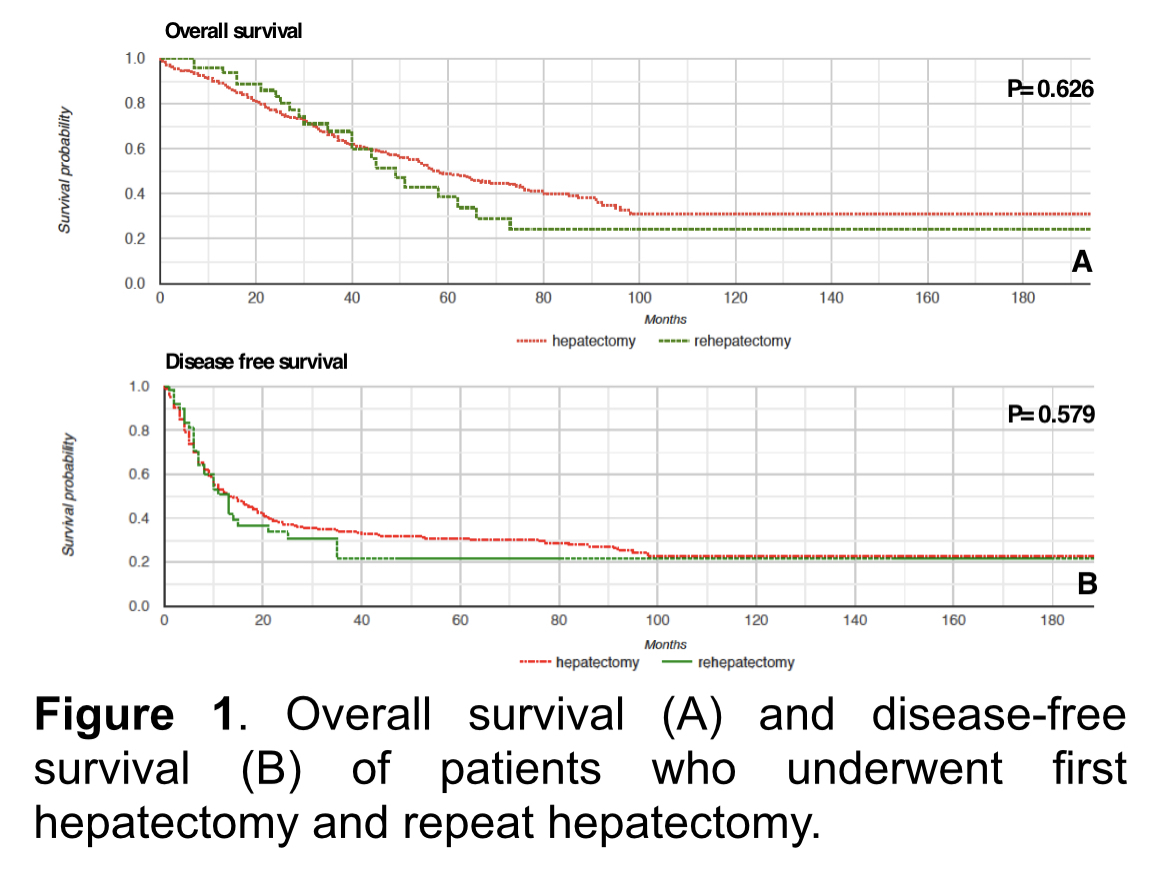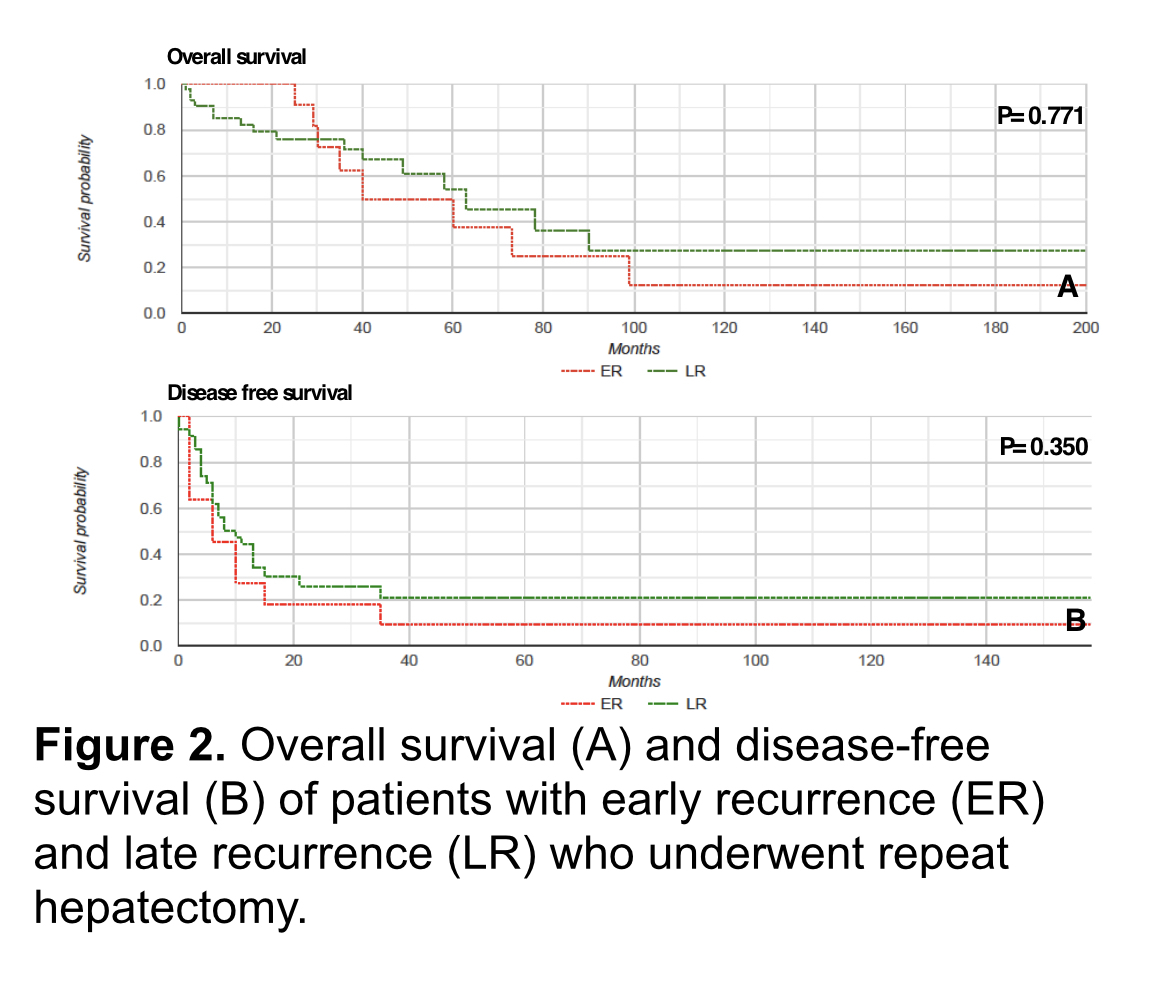REPEAT HEPATECTOMY FOR COLORECTAL LIVER METÁSTASES: THE IMPACT OF EARLY AND LATE RECURRENCE ON LONG TERM RESULTS
Paulo F. Costa, Fabrício F. Coelho*
Universidade de Sao Paulo Hospital das Clinicas, Sao Paulo, São Paulo, Brazil
Background: Hepatic recurrence after resection of colorectal cancer liver metastases (CRLM) is frequent. Repeat hepatectomy has been shown to have satisfactory perioperative results; however, the long-term outcomes and the benefits for patients with early recurrence have not been clarified. Aim: To compare the short- and long-term outcomes of patients undergoing first hepatectomy and repeat hepatectomy for CRLM. Additionally, the oncological outcomes of patients with early (? 6 months) and late recurrence who underwent repeat hepatectomy were compared. Methods: Consecutive adult patients undergoing hepatic resection for CRLM between June 2000 and February 2020 were included and divided into two groups: first hepatectomy and repeat hepatectomy.Quantitative data were compared using the Mann-Whitney U-test. For the categorical variables the Fisher's exact test or the Chi-squared test was used. Survival curves were calculated using the Kaplan-Meier method and compared using the log-rank test. Significance level was set at 5%.Results: A total of 709 patients were included: 649 in the first hepatectomy group and 60 in the repeat hepatectomy group. Patients in the repeat hepatectomy group underwent more cycles of preoperative chemotherapy (4 [3–6] vs. 3 [2–4], P=0.003). Patients in the first hepatectomy group more frequently underwent major hepatic resections (34% vs. 16.7%, P=0.004) and had more lesions resected (2.9 ± 3.6 vs. 1.9 ± 1.8, P=0.011). There was no increase in operative time, estimated blood loss, length of hospital stay, complications, or mortality in the repeat hepatectomy group. There were no differences in overall survival (P=0.626) and disease-free survival (P=0.579) between the groups (Figure 1). Similarly, no difference was observed between the early and late recurrence groups after resection in terms of overall survival (P=0.771) or disease-free survival (P=0.350) (Figure 2). Conclusions: Repeat hepatectomy is feasible and safe for recurrent CRLM, with similar perioperative and long-term outcomes compared to first hepatectomy. Surgical treatment of early hepatic recurrence offers oncological outcomes similar to those obtained for late recurrence and is an important therapeutic option in this subgroup of patients.

Back to 2022 Abstracts
